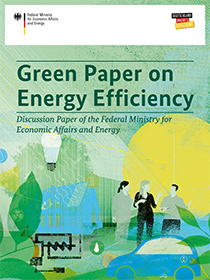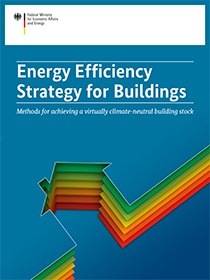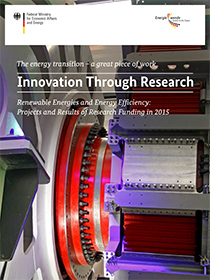Energy efficiency pays off: for private citizens, companies and municipalities. Before you invest in improving the energy efficiency of your home or business, having the right information is key. The German government is providing a wide range of different information services and funding programmes.
Energy-efficiency hotline
As part of its ‘Germany makes it efficient’ campaign, the Federal Ministry for Economic Affairs and Climate Action has launched a freephone service hotline. Individuals and companies can call 0800 0115 000 to learn more about the many programmes Germany has launched to support the move towards greater energy efficiency. For more information and practical tips, please go to www.deutschland-machts-effizient.de (in German).
Services for consumers: initial advice and energy audits
If you’re looking to gain an initial overview and tips on how to conserve energy, the consumer centres are a good place to start. They offer a wide range of information services on their websites, over the phone, and can even come to your home. You can also have an energy audit at your house, which will allow homeowners and tenants to learn how to conserve energy at home. For further information, please click here.
The Label Guide (in German) and a range of infographics and checklists (in German) help consumers to find the appliance that best suits their needs. The consumers can also benefit from tips on how to use their existing equipment in a way that saves more energy, thus cutting their electricity bills.
Energy audits and funding for companies
Like private consumers, companies also stand to save a great deal of money if they invest in energy-efficient machinery and processes. SMEs in Germany can benefit from a whole raft of advisory services and funding programmes that are all tailored to help them improve their energy performance. These include funding for energy management systems, systems to prevent and/or use waste heat, support with investments in energy-efficient and climate-friendly production processes, and support for energy advice for companies. For an overview of all the different programmes available to companies, please click here.
Reaching the target more quickly: the energy efficiency dialogue
We can only get more companies, municipalities and private households to understand and use the funding available for energy efficiency measures and progress the energy and heat transition if we work together and exchange experience with multipliers. The energy efficiency dialogue therefore addresses stakeholders like associations and chambers, energy agencies, Länder and municipalities, and banks. It aims to identify shared communication channels in order to give energy consumers targeted information about energy efficiency measures. Find out more here (in German).
Getting hold of funding more quickly and easily
The “Energy efficiency and heat from renewables support strategy” (in German) is a comprehensive concept for a reform of the funding. Under it, the various support programmes are being gradually (from 2017 to 2020) restructured, packaged together thematically and targeted at specific audiences. Interested parties – whether they are citizens, companies or municipalities – should thus be able to quickly find the right funding programme for them and easily complete the application process.
In parallel, an “efficiency path-finder” is being built up which guides applicants to tailored funding programmes and provides them with all the necessary information in an easy-to-understand form.







